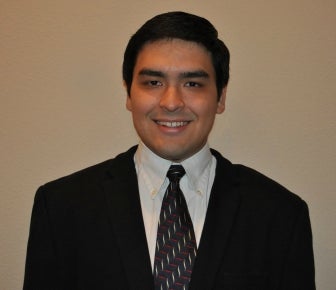
Alumni Spotlight
Jonathan Scott (MD/MPP 2019)
What made you decide to pursue the Joint MD/MPP program?
I decided to join the MPP program so I could better serve my patients; I want to help them not just with their ailments but with their situations as well. I realized how important holistic care was when I was selected to serve as the medical student representative for the Riverside Free Clinic. There, I saw the difficulties that the patients in the free clinic faced, which were particularly poignant during the enrollment period for Obamacare. Because of that legislation, fewer people needed our clinic, but those who were not able to benefit from it were incredibly frustrated by it. This experience highlighted that I needed to understand more than ailments to help my patients. I decided I wanted to improve their lives before they came into the hospital and to join the MPP program.
How do you interact with policy on a day to day basis in the hospital? How has your policy background aided you in the hospital setting?
I see the downstream effects of policy on a day-to-day basis. For example, many of the families in my free clinic live in food deserts and struggle to eat healthy, and unfortunately, these families’ health suffers for it. They often have related diseases, like diabetes. My background in policy has allowed me to see “behind the curtain” and understand why my patients come in with certain diseases. It also opened my eyes to understanding the struggles they have with controlling their diseases, such as paying for medications or getting insurance. This broader understanding is especially helpful in my continuity clinic as it is in a county hospital setting. Understanding these policies helps me identify the root of my patients’ problems and inspires me to try to find more holistic solutions to treating them.
What was your experience with COVID at the hospital?
It started off as an interesting puzzle. We were in a pandemic with a new disease that no one understood. Experts were constant researching, and my colleagues and I were learning to adapt to the shifting norms. I could see how policy directly impacted COVID admission rates; for example, following mask mandates and shutdowns, admission rates dropped. I was able to use the skills I learned while earning my public policy degree to see what studies I should use and which ones wouldn’t help me change patient care for the better. As the public started getting restless, and policy shifted towards letting people congregate, we would see COVID patients flood hospitals as we watched virtually helplessly. Patients became sicker and sicker, and eventually died. We have so few medications that have shown to be helpful, and the helpful ones often provide only moderate improvements in the best of circumstances. It became painstakingly clear how critical understanding policy was to managing a pandemic.
Are you still engaged with the SPP post-graduation? What projects are you working on with our faculty?
Yes, I am currently involved in a COVID-19 advisory board project with Dr. Wei, Dr. Link, and Dr. Ayon. I am very excited to help with this project, as it presents an opportunity for me to combine my love of policy with my love of medicine. The aim of this undertaking is to see how the pandemic has affected people’s mobility patterns in both high and low income communities, access to COVID-19 testing and care, as well as how COVID has spread throughout these various communities. We have received funding, and will start setting it up once paperwork is finalized.
What can students expect in the MPP program?
Students can expect to learn research skills that they can apply to uncover important findings about minorities, poverty, environmentalism and other factors that are directly applicable to policy decisions. Importantly, these skills can be used by the students in a wide variety of settings across the nation; but they are particularly useful in the Inland Empire and provide an excellent set of tools for students to give back to the community that educated them. Moreover, students will learn these skills from a top-notch research faculty that are happy to mentor you. I was lucky enough to work with Dr. Link for who I am forever grateful. I hope to continue to work with him, and I am confident that students who graduate from the MPP program will have the tools to make the policy changes they want to see. I look forward to seeing how the program makes me a better doctor, and how its other graduates make the world a better place.